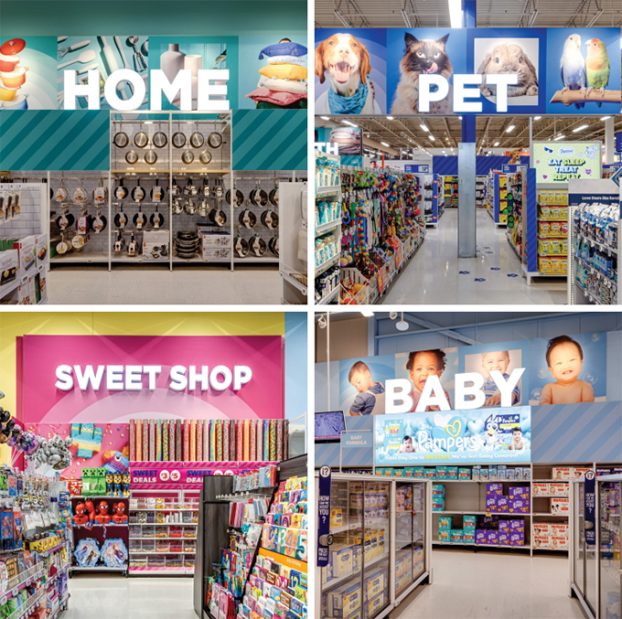Timothy’s World Coffee, Druxy’s, BakeWorks and Nestle Canada have entered into a twinning agreement with Toronto-based Silcorp – owners of Mac’s, Mike’s Mart and Becker’s convenience stores – that could see distribution of their brands increase dramatically.
Silcorp outlets will sell the companies’ products in dedicated areas as part of a deal that adds new revenue streams to Silcorp’s merchandise lineup, and helps elevate the perception of convenience stores from teen hangouts to suppliers of ‘immediate consumption’ products.
Scott Findlay, vice-president of marketing and distribution for Silcorp, says the deal is a good one for all concerned, for while Silcorp gets to boost its appeal, Timothy’s, Druxy’s, BakeWorks (formerly known as BagelWorks) and Nestle Canada’s Pastaria, Lean Cuisine and HomeStyle lines ‘gain exposure and access to our customer base.’
The twinning arrangement is currently being tested at one Toronto Mac’s store, which has been renovated to acccommodate the new setup. If the pilot project works, the partners will move into other Silcorp stores, says Findlay, adding the company’s also not ruling out other potential partners.
While no sales figures have been released (the test store opened only a few weeks ago), Silcorp says coffee consumption at the store is up 250%. Whether this is attributable to the fact that the store’s interior has been redesigned, making it more attractive to customers, or to the supply of Timothy’s premium coffee, is unknown.
What is known, however, is that the four partners stand to increase their exposure exponentially through Silcorp’s cross-country retail network.
Currently, Silcorp operates 850 stores. Compare this to Druxy’s 47, Timothy’s 75, and BakeWorks 21 locations. (The BakeWorks figure includes kiosks in eight Price Club and Costco stores). Nestle Stouffer’s brands are already widely available.
‘It lets us reach all of Mac’s customers, who may or may not already be Timothy’s customers,’ says Becky McKinnon, president of Timothy’s World Coffee. She adds that the twinning with Silcorp is ideal in neighborhoods where traffic levels wouldn’t accommodate a free-standing store.
Nestle, of course, had no problem reaching customers. But as Paul Duxbury, category development manager for Nestle Canada says, the company’s distribution philosophy is essentially, ‘wherever-whenever.’ Wherever or whenever a consumer wants to buy one of its products, he says, Nestle is going to endeavor to provide it to them.
In the Toronto test store, individual areas are staked out for each brand, so that the store acts as a kind of host facility.
Timothy’s, for example, has a special self-serve kiosk where various specialty coffees, teas, desserts and coffee beans are sold. Toronto’s Savage Sloan Design Group even designed special packaging for the coffee line – Timothy’s Travelers – being sold.
BakeWorks also has a designated area where patrons can choose between bagels, muffins and cookies. Druxy’s provides fresh food items for patrons, while Nestle offers frozen meal solutions in a dedicated freezer bunker called the Stouffer’s Meals To Go section.
But will people want to buy gourmet coffee and ready-to-go meals in stores traditionally associated with cigarettes, chocolate bars and slushy drinks?
Silcorp says emphatically, yes.
‘With this new concept, we are moving forward and gaining back the neighborhood store of many years ago – but doing it in a way that is much more professional and interesting than in the past,’ says Findlay.
To allay fears on the part of the retail partners that they would degrade their brand images by associating with a convenience-store chain, Silcorp gave them assurances that it would apply the same high-quality standards that each company insisted on in its own outlets. As well, brand partners were involved in the training and presentation processes.
‘It is a very strong statement that [Silcorp] sees our brand as so strongly identified with quality that they want us in a $50-million dollar renovation program that involves their stores in Ontario,’ says McKinnon.
Repositioning its stores from that of teen-hangout to one where a more mature audience, particularly female, feels comfortable shopping, has been part of the Silcorp strategy since late 1996.
Since then, major revamping of stores has included updating the Mac’s logo, clearing out clutter from window fronts, and adding brand partners at specially made kiosks. Gone, too, are the slush machines, stale sandwiches and old coffee.
‘We are in a position to call ourselves a host neighborhood retailer,’ says Findlay. ‘The day may come where we stop calling ourselves a convenience store.’
Nestle’s Duxbury, for his part, calls them ‘immediate consumption outlets.’ Whatever the name, they seem poised to reinvent the traditional convenience store.
While the host neighborhood retailer concept is new to Toronto, Silcorp has already tried this concept – with great success it says – in its convenience stores out west. Findlay says there are 60 stores in Western Canada selling brand names such as Seattle’s Best Coffee.
According to Findlay, partnering depends on each individual community and can even change from block to block. Everything depends on the relevance to the particular demographic in that community, says Findlay.
However, he says it is likely that when the revamping of stores nationwide is complete, 80% will include a number of the same brands while 20% will be tailored to individual neighborhoods.
Findlay adds that the change from traditional convenience store to one-stop-shopping experience wasn’t due to lost revenues – rather it came from customers telling the company they wanted more selection and variety at their neighborhood store. For although they may be time-strapped, today’s consumers are not willing to forego quality, he says.
Findlay says only when more stores have been revamped, will advertising be rolled out. In Toronto, the campaign will be prepared by Toronto-based Gee Jeffery & Partners Advertising and will most likely include print, transit and radio.























